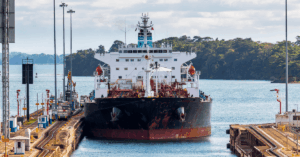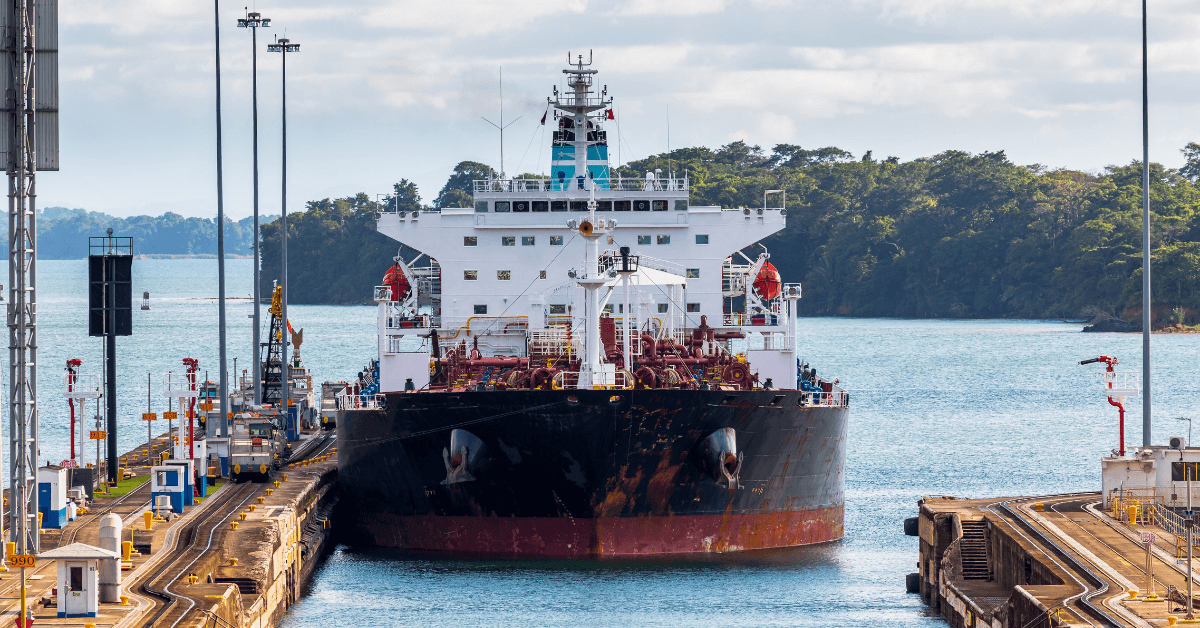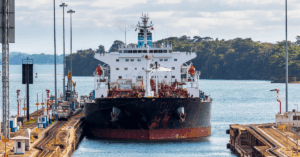
VARD Delivers Two Of The World’s First Vessels With Cyber Notation Under New Regulations
June 2, 2025
Wenatchee Becomes Largest U.S. Ferry To Go Electric After Historic Conversion
June 3, 2025

Panama’s Maritime Authority has removed more than 650 vessels from its ship registry since 2019 to strengthen compliance with international sanctions and tighten control over maritime activities.
The registry, one of the largest in the world, has been under increasing global pressure to prevent the misuse of its flag by vessels involved in illicit trade.
Out of the 650-plus ships removed, 214 vessels were taken off the registry since October 2024 alone. These vessels together accounted for more than 12 million gross tonnes and were delisted under a new decree that allows Panama to cancel registrations of ships whose owners are listed on international sanctions lists. Once a ship is de-flagged, it can no longer legally sail under the Panamanian flag.
The move comes after criticism from U.S.-based non-governmental organisation United Against Nuclear Iran (UANI), which said that Panama is not doing enough to stop sanctioned vessels, particularly those linked to Iran.
UANI accused the Central American nation of allowing its flag to be used by tankers involved in transporting Iranian oil. According to the group, 94 out of 542 ships suspected of carrying Iranian oil, roughly 17%, were sailing under the Panamanian flag.
UANI further alleged that Panama’s lax enforcement has enabled billions of dollars in Iranian oil trade and said this posed a risk to both U.S. and regional security. The group’s CEO said Panama’s inaction was not just a registry issue but a threat to sanctions enforcement globally. UANI also accused Panama of avoiding responsibility through lobbying and public relations tactics rather than taking strong enforcement measures.
Panama signed an agreement in August 2019 with other flag states, including Liberia, the Marshall Islands, Vanuatu, Dominica, Antigua & Barbuda, and Moldova. This agreement allows the participating countries to share information about vessels whose registrations have been denied or cancelled due to concerns over sanctions violations.
The country (Panama) has also introduced stricter regulations on ship-to-ship (STS) oil transfers involving vessels flying its flag. These measures aim to curb the increasing use of “dark fleet” tankers, which operate covertly by disabling tracking systems to avoid detection while transferring sanctioned oil or bypassing environmental rules.
In May, the maritime authority said it would strengthen oversight of such ship-to-ship operations after a spike in incidents where Panama-flagged vessels were involved in evasive practices.
At present, around 8,065 ships continue to fly the Panamanian flag. Despite the recent cancellations, Panama remains the world’s largest flag state, largely because of its open registry system, which allows foreign-owned vessels to register under its flag for lower fees and fewer regulations, a practice known as using a “flag of convenience.”
The U.S. government has urged countries with large open registries to do more to enforce sanctions, especially those targeting Iran. Earlier, President Donald Trump criticised Panama for not doing enough to stop the movement of sanctioned oil and even threatened to take control of the Panama Canal as a response to its perceived inaction.
Panama’s Maritime Authority said it is continuing to collaborate with U.S. authorities and international partners to make sure its registry is not used to violate sanctions or support illegal maritime activity.
Reference: Reuters
Source: Maritime Shipping News


